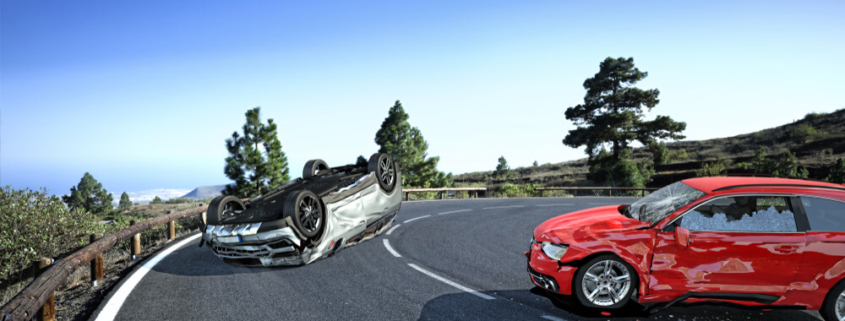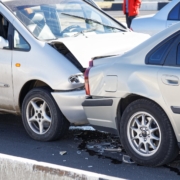Is a Car Crash Ever an Accident?
If you open the newspaper and flip through, you’ll read a lot about car accidents. A drunk driving accident that killed one and injured three, a bad weather accident that left a car totaled, or a traffic accident that happened after a driver ran a red light. However, the definition of the word “accident” is a negative event that happens unexpectedly and unintentionally.
Knowing the true definition of accident, is any car crash really an accident? Views on this matter are split.
Everyone Uses the Word “Accident”
First, it’s important to note that almost everyone uses the term “accident.” Even police reports for car collisions are often officially called “accident reports.” This implies that there is something unavoidable about a car collision. Or, to govern further, it implies that the vehicle itself is responsible for the crash.
This dates back to when cars were novelties on the road. People barely understood how they worked, and safety precautions were limited. As a result, collisions were always attributed to the vehicle. Over time, the term “car accident” came to be preferred to “car crash.”
The NHTSA has been compiling data for decades to study car “accidents” to determine patterns and likely causes, and have found that many of these crashes could have been avoided.
Most Car Crashes Have a Clear Cause
This reasoning, though, doesn’t really stand up today. The vast majority of car crashes are avoidable and have a clear cause. In most collisions, the cause is not the car itself. While some crashes can be linked back to defective auto parts or poor repairs, almost all crashes are caused by human error. Whether the human error is driving while impaired, turning in front of an oncoming vehicle, improperly estimating another vehicle’s speed, or failing to see a traffic light, all of these errors are avoidable. In these situations, to call a crash an “accident” is a misnomer.
The Term “Accident” Denies Cause
The term “accident” causes a substantial amount of pain for those who have lost loved ones to careless drivers. The term implies that nothing could have been done to change the outcome and that the collision was simply bad luck. But in most cases, this simply isn’t true. It’s not a matter of bad luck; it’s a matter of choice. People choose to drive while impaired. People choose to drive over the speed limit. People choose to chat while in the car, which causes them to miss a sign and not see that the speed limit has dropped. To honor those who have been hurt or killed in car crashes, we need to stop tossing the term “accident” around so lightly. We need to hold irresponsible or reckless drivers accountable.
Are There Any Accidents?
So, if accidents are unintentional or unavoidable, are there any car accidents? This all comes down to semantics, so there isn’t really one true answer. Some people still believe that accident is the right word to use for any car crash, even if avoidable human error is involved. The accident itself was unintentional, they claim, so the term is correct.
Others have started to eliminate the term “accident” from their vocabulary slowly. Some insurance companies, rather than referring to “accidents,” categorize collisions as unavoidable crashes or avoidable crashes. This emphasizes the fact that most crashes are avoidable and aren’t simply random events of chance.
However, no matter where you fall on the spectrum, you’ll likely find that there will always be some accidents. Obviously, crashes that occur because of mechanical error or malfunctioning components are unavoidable unless the driver knew about the issues ahead of time.
The same can even be said about crashes caused by human error. At what level of attentive driving do you stop considering a crash avoidable and start considering it unavoidable? Say someone swerves in front of you on the highway, leaving almost no room between the front of your car and the back of theirs. You panic and brake, but they brake harder and you hit the back of their car.
The insurance company blames you because you were the driver in back. In retrospect, you might think you should have switched lanes and avoided the crash entirely. But on your end, was the accident really unavoidable? Not unless you had perfect foresight and completely clear decision-making skills in times of crisis. And who really does?
What if you’re driving and checking the road for other cars, and you miss a sign that shows the speed limit has dropped? You continue driving 10 MPH over the speed limit, which causes an accident when you hit a patch of ice ahead. This was avoidable, but is it really fair to expect people to see every sign and adhere perfectly? No matter who you are talking about, no one is a perfect driver and to expect that is unfair and impractical.
In summary, to put it in simple terms, some car crashes are truly accidents. However, most of the time, these crashes are due to our own bad decisions. As language adapts and becomes more sensitive to the people who use it, perhaps we will see the word less and less often.
If you or someone close to you has been injured in a car accident, you could be entitled to significant compensation. Remember, however, that the insurance company’s goal is to pay out as little as possible, so they are not on your side when it comes to filing an accident injury claim. In order to ensure that you recover maximum compensation, it is best to speak with an experienced personal injury lawyer about your case.






Leave a Reply
Want to join the discussion?Feel free to contribute!